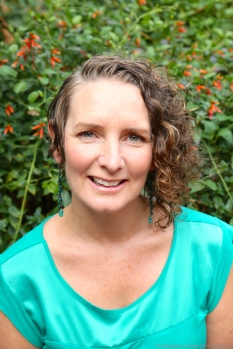Something that I notice a lot is when people with social privilege, often white and with economic privilege, speak about their experiences as if they are universal, as if everyone experiences them. An example of this was from today when a young person who I know and is in her first year of college was telling me about how her professor was explaining a situation that he had been through. He started out with, “everyone has been through something similar to this…” but the situation was very specific to somebody from an upper class, white cultural experience. She is Black and grew up without a lot of economic resources and when she was listening to him, she was internally shaking her head and laughing at his assumptions and ignorance.
Working at a school with predominately white teachers and majority students of color, I often overhear situations like this. What I have found is that, generally speaking, the more privilege a person has, the less likely they are to recognize that not everyone experiences the same types of situations than they do.
For anyone who has ever done the privilege walk, I think it illustrates this point beautifully. If you have a diverse group of people and everyone stands on a line to start, different statements about having privilege or not having privilege are read out loud. The people who have experienced what the statement says take a step forward or a step back. After many statements, such as “take a step forward if you grew up with both parents in the home” or “step back if you have been pulled over by the police more than 3 times” are read, the people who experience the most amount of privilege, white straight males, end up at the front of the line and then at the back of the line are people who deal with the most amount of social oppression, which ends up being females of color, or queer people of color. Everyone else with varying degrees of privilege and oppression end up along the continuum, depending on their experiences. If everyone is facing forward towards the front, the facilitator asks the question, “Who has the best view of the society.” The people at the back of the line can see everyone in front of them, but the people in the front of the line can only see themselves or people next to them. Their social blinders are on.
This seems to be exactly what happens in life. The more privilege one has, the more difficult it is to notice others around you. The blinders are on and unless we make an effort to turn around and ask people what they are experiencing or notice how their life is, we only see in front of us and from side to side. On the flip side, people with the least societal privilege are aware of everyone else in front of them and aware of the differences in experiences. I rarely, if ever, hear people who experience a high level of societal oppression talk about their experiences as if they are universal truths. They can see clear as day that other people are living lives different than them due to racial privilege, economic privilege, educational privilege, etc….
For me the lesson in this is for all of us to take more time turning around and becoming aware of the people and experiences who aren’t directly visible to us. Don’t make assumptions about other people’s experiences and instead take the time to learn about people, with an open mind. And don’t assume you know what other people go through. Assumptions don’t help us build relationships and connections. They keep us divided and ignorant.

